My shopping cart
Your cart is currently empty.
Continue ShoppingKia-ora! I’m recently back from a wonderful visit to my native New Zealand where I spent several weeks visiting with my suppliers who produce the Manuka Oil that I sell as well as Manuka honey. I am always conducting more research into the remarkable healing powers of this unique essential oil and looking for ways to introduce it to the world market.
For those who are unfamiliar, Manuka oil is distilled from the leaves and small branches of Manuka trees that are unique to a small area in New Zealand called the East Cape. These trees thrive in ancient volcanic soil, drawing minerals and nutrients into their leaves and flowers. It is these same trees that are also used by honey bees to make world-famous Manuka honey.
An interesting fact is that It wasn’t far from the East Cape region in the early 1800s that honey bees were first introduced to New Zealand by Mary Bumby, the sister of a Methodist minister. She was able to keep two hives of bees alive on a 6-month sea voyage from England, no small feat!
Back in 2014 when I launched NZ Country, my purpose was to share the incredible benefits of pure New Zealand 100% Manuka oil with the world. I learned of the power of Manuka from my Maori friends as I was growing up in Auckland. The indigenous Maori people have been using the Manuka tree for centuries for a vast array of common ailments such as insect stings, respiratory illnesses, burns, and bruises.
There are so many uses for Manuka oil that I wrote a book that provides information and tips on how to use it for many more conditions like athlete’s foot and psoriasis, acne, and eczema. When someone buys Manuka oil from me they get a free copy of the e-book and I’ve been delighted to hear how grateful they are to learn of the many conditions that benefit from this essential oil.
As the owner of NZ Country Manuka, I regularly visit our suppliers along the East Cape. It’s a 10 hour non-stop flight from Los Angeles to the southern Pacific - but I never tire of the site of New Zealand coming into view.
This time, after visiting family in Auckland, I traveled 200 miles through stunning scenery to the Manuka plantations and the distilling factory.
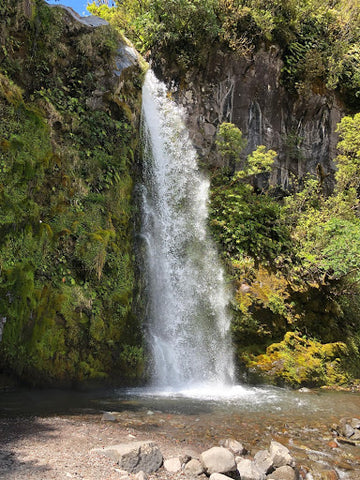
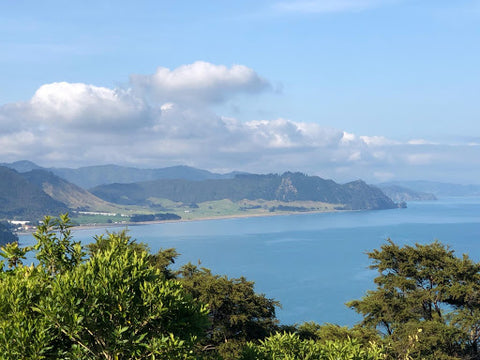
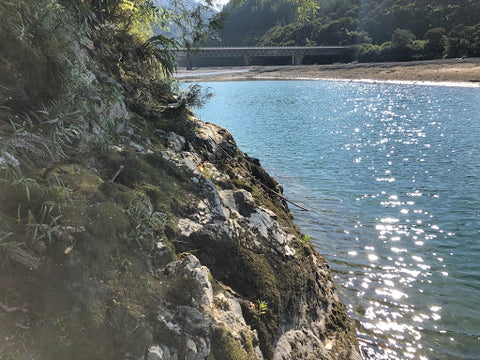
The remote location of my suppliers, on the East Cape, is unique in that the variety of Manuka trees that grow there test very high in the active ingredient in the oil that gives it powerful anti-fungal and anti-bacterial properties.
My suppliers test every batch of Manuka oil to ensure the levels of these ingredients meet the very high standards set by the suppliers themselves. Manuka trees with these specific biologic properties do not grow anywhere else in the world.
It is a unique treasure of New Zealand that provides an organic, vegan, and cruelty-free product that anyone can use to remedy an unwanted condition. The popularity of Manuka oil and Manuka honey has also created sustainable employment for the native Maori people who husband the land so it can continue to thrive.
Over the last 10 years, Manuka oil has been gaining popularity as a more potent alternative to the well-known Australian Tea Tree oil. Demand has far outstripped supply, and the traditional means of wild-harvesting directly from the surrounding hills has proven to be inadequate and potentially unsustainable. It takes 1 ton of the raw manuka tree brush to produce 2 liters of the oil, so harvesting in the wild has been very labor-intensive.
Recently several new 100 acre plantations have been planted using seeds collected from the local area and grown into seedlings. A quarter of a million seedlings were planted while I was there earlier this year. This will mean easier harvesting and greater availability of the oil, as well as increasing carbon capture and providing a sustainable crop that improves the environment. It will contribute a small part of the NZ government’s target to plant 1 billion trees throughout the country to reduce the carbon dioxide load on the planet’s ecosystem.
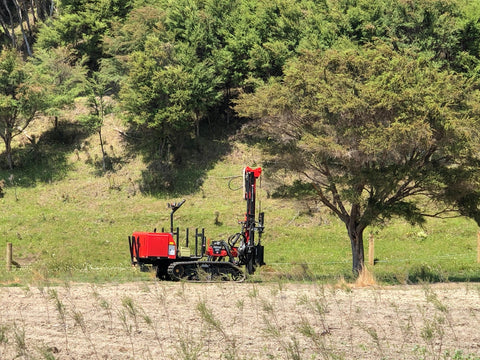

One of the national TV stations in New Zealand recently filmed an episode of their program called “Country Calendar” at one of the locations I had the pleasure of visiting. It was released last month and you can view it here:
This episode provided an extremely good overview of the background of the oil, how it’s processed, and provided an inside look at the local farming community. The East Cape region produces Manuka oil with extremely high levels of triketones, the active ingredient that gives Manuka oil the superior antifungal and antibacterial properties it is famous for.
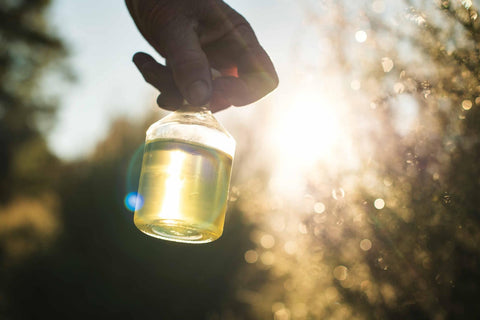
New Zealand’s manuka honey is famed for its medicinal abilities — who hasn’t had a honey and lemon drink for a sore throat, or been told to use it on a wound? In fact, the FDA has approved the use of Manuka honey for use in the healing of diabetic wounds. Manuka honey comes from the pollen of the manuka flower, a tiny white bloom that dusts the tree from October to March.
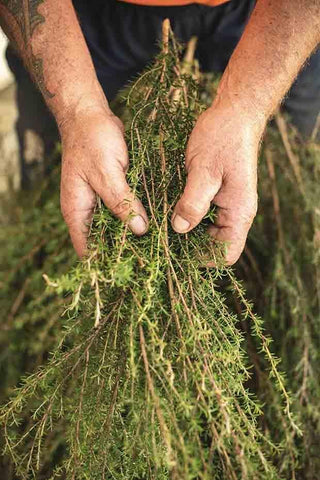
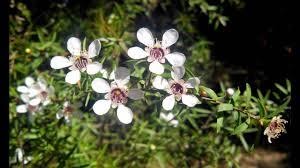
What lies within the branches and leaves of the mānuka tree is an essential oil that includes all of the famed healing properties of mānuka honey, and much more.
After harvesting, the crop of small branches and leaves are run through a chopper before being moved into large tanks and compacted. The leaves are steam-distilled for five to six hours with fresh spring water. The oil-laden vapor rises and travels through to a condenser where it cools and separates from the water, leaving the organic pure mānuka essential oil.
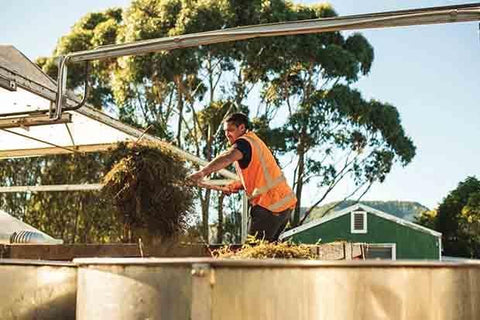
No chemicals of any kind are used in the natural distilling process. This process has been used to extract aromatic essential oils from plants since Roman times. The byproduct of floral water, or hydrosol, is preserved and shipped to cosmetic manufacturers around the world. The left-over plant material is used as a very rich compost that has properties as a natural pesticide. Nothing of this precious plant is wasted.
New Zealand’s proximity to the hole in the ozone layer may also play a role in mānuka’s medicinal talents since many native plants such as mānuka have adapted to defend themselves against the high levels of UV-B light. These plants have adapted to sun exposure by producing more polyphenols, which in turn have stronger antioxidant and antibacterial properties.
As a boy, I grew up in the coastal region where Manuka trees grow profusely. I now live in the US and import the raw product to be incorporated into many health care-related products. Each batch is inspected and tested in New Zealand to maintain the quality of the triketones that are integral to the efficacy of this remarkable oil.
Our companies operations are based in the USA where we manufacture and package our products which are now distributed and sold in many countries.
We firmly believe that Manuka oil is a natural, holistic health alternative that has stood the test of time with practical healing applications for hundreds of years. Providing an alternative to the offerings at the local drug store has been a goal of mine for many years.
Manuka oil has so many uses it truly is a medicine cabinet in a bottle. My recent trip to New Zealand, where I was able to reconnect with my suppliers and plan for future production, was refreshing and exciting. I’m already looking forward to my next trip!